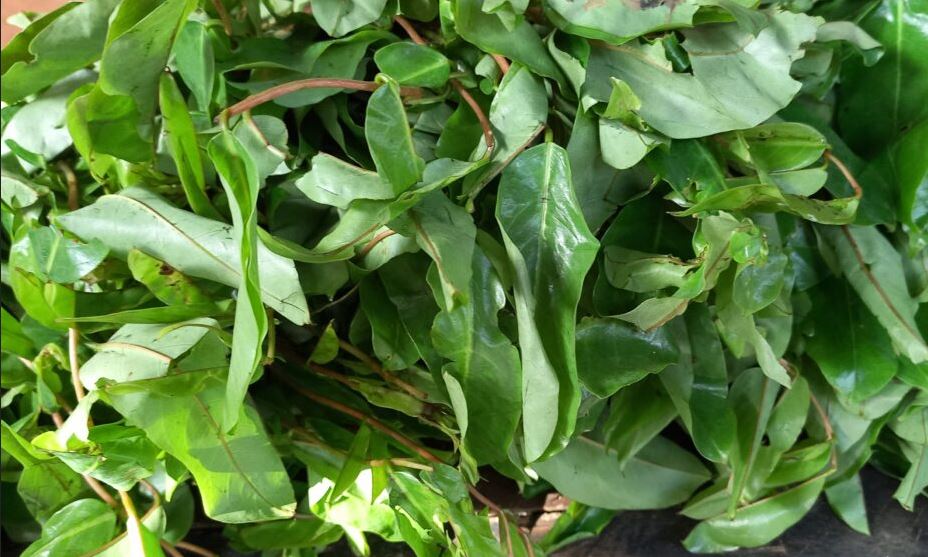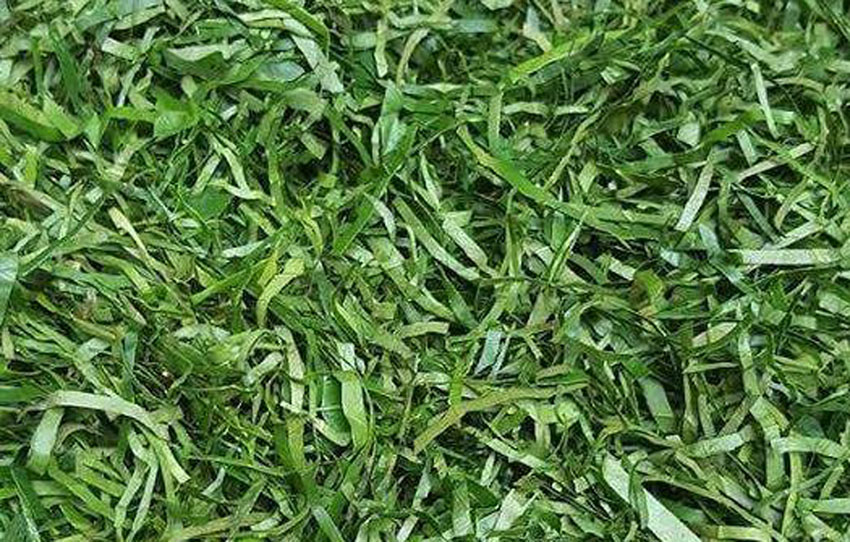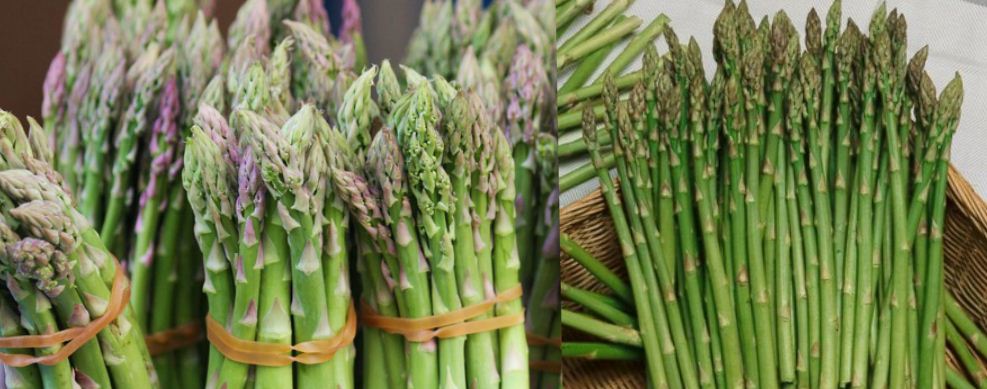Remarkable Health Benefits of Oha Leaves (Pterocarpus Mildbraedii)

Oha or Ora Leaves (Pterocarpus Mildbraedii), commonly known as African Rosewood, is a popular indigenous plant with numerous health benefits. Native to the Igbos in Nigeria, this green leafy vegetable is rich in essential nutrients and used in preparing various traditional dishes.
In this comprehensive article, we will delve into the numerous health benefits of Oha Leaf and explore its nutritional content, culinary uses, and potential side effects.
Nutritional Value of Oha Leaves
Oha leaves have essential nutrients and vitamins, contributing to numerous health benefits. According to studies, 100 grams of raw edible Oha leaves contain:
-
Energy: 56 Kilocalories
-
Moisture content: 85 grams (g)
-
Protein: 4 g
-
Fat: 1 g
-
Carbohydrate: 8 g
-
Crude fiber: 1 g
-
Calcium: 72 milligrams (mg)
-
Magnesium: 28 mg
-
Iron: 5 mg
-
Zinc: 3 mg
Furthermore, Oha leaves are excellent sources of B vitamins, vitamin C, antioxidants, manganese, and copper, all of which play critical roles in maintaining optimal body function.
20 Remarkable Health Benefits of Oha Leaves
Oha leaf, scientifically known as Pterocarpus mildbraedii, is a nutritious vegetable commonly used in traditional African cuisine, particularly in Nigeria. People really like Oha leaves for their distinct flavor and numerous health benefits. Here are 20 health benefits associated with consuming Oha leaf:
1. Rich in nutrients:
Oha leaf is a nutritious plant with essential vitamins and minerals, including vitamins C, B, folate, iron, magnesium, and potassium. The fiber in this product ensures that you remain full for a long time.
2. Rich in antioxidants:
Oha leaves are abundant in antioxidants, essential compounds that help the body combat harmful free radicals. The detrimental particles can lead to various ailments like cancer, diabetes, and heart conditions.
Research has discovered that Oha leaves contain phenolic acids, lupeol, and benzenediol, all vital antioxidants that help ward off infections and boost immunity.
3. Boosts immunity:
Oha leaves contain essential vitamins and nutrients that can significantly strengthen your immune system. The leaf is rich in phytochemicals and antioxidants that fortify the immune system to fight diseases and infections.
The high concentration of vitamin C in the leaf assists in white blood cell production, strengthening the body's defense system against infections. A 2015 study found that extracts of Oha leave considerably boosted the immune system of treated rats.
4. Anti-inflammatory effects:
Pterocarpus mildbraedii, also known as Oha leaf, is a plant species with anti-inflammatory properties. Oha leaf reduces symptoms associated with inflammatory conditions such as joint pain, musculoskeletal problems, allergies & more.
5. Digestive health:
Oha leaf contains unique fibers, which you can't find in any other plant, and promotes healthy digestion and prevent constipation. More recently, oha leaf supports a healthy gastrointestinal system, relieves stomach issues such as gas and bloating, and prevents digestive diseases such as diabetes.
High-fiber foods like Oha leaf can combat constipation and protect against colon cancer and other cancer forms.
The zinc content in Oha leaf can be beneficial in treating diarrhea. Zinc helps repair and protect the intestinal mucosa, aiding in a proper recovery from diarrhea.
6. Heart health:
Oha leaf (Pterocarpus mildbraedii) contains nutrients that support cardiovascular health, including potassium, which helps regulate blood pressure, and omega-3 fatty acids, which can help lower cholesterol levels.
This leafy green is also becoming popular with chefs because of its sustainability and ease of use in ingredient lists.
Hypertension, or high blood pressure, can often lead to fatal consequences. Unfortunately, it rarely presents symptoms, making it difficult to detect without regular check-ups.
Dietary changes can help manage your condition if you have high blood pressure. Oha leaf is rich in potassium and magnesium, two nutrients that can help reduce blood pressure by relaxing blood vessels.
7. Bone and Joint health:
Oha leaves are an excellent source of calcium, magnesium, and manganese, all essential minerals for bone health and development. Incorporating foods with abundant amounts of these advantageous substances into your diet can prevent bone disorders such as osteoporosis and arthritis.
Oha leaf can contribute to joint health and reduce the pain associated with arthritis. It contains manganese, which keeps joints well-lubricated and helps form cartilage around the joints.
8. Energy boost:
Oha leaf provides a natural energy boost due to its high iron content, which aids in producing red blood cells and helps prevent anemia.
9. Eye health:
Including beta-carotene and vitamin C helps us sustain healthy eyes and prevents issues like macular degeneration in the later years of life.
10. Skin health:
Oha leaf contains antioxidants that can halt the damage from free radicals, leading to healthy and youthful skin.
11. Weight management:
The fiber-rich Oha leaf, with its low-calorie content, assists in maintaining healthy body weight.
12. Blood sugar control:
The utilization of Oha plant foliage can aid in controlling blood sugar levels and optimizing insulin function in the body and may prove valuable for diabetic patients.
Oha leaf has a lot of healthy fiber. Managing your blood sugar levels can prevent diabetes. A diet that includes vegetables high in fiber can decrease the risk of acquiring type 2 diabetes. Including Oha leaves in your diet can assist in managing your blood sugar levels.
Another notable health benefit of Oha leaf is its suitability for people with diabetes. With a low glycemic index, Oha leaves can help regulate blood glucose levels and prevent the accumulation of calories in the blood, which can increase blood sugar levels.
13. Liver and kidneys health:
Oha has beneficial effects on the liver and kidneys' well-being. Oha has a positive impact on the health of the liver and kidneys. Certain portions of a substance enhance the recovery of rats' livers.
The findings revealed that the sub-fractions restored the damaged hepatic architecture in the rats, suggesting that Oha leaves may help prevent or treat liver damage. Two other medical studies have also confirmed the positive health effects of Oha leaves on the liver.
14. Anticancer properties:
Some studies suggest that Oha leaf contains compounds with anticancer properties, although further research is needed to understand its full potential in cancer prevention and treatment.
Oha leaves have potent antioxidants and numerous healthy phytonutrients, which may help prevent cancer. According to research, flour, saponins, alkaloids, and tannins are present in Oha leaves.
Plant compounds can eradicate harmful substances and combat cancer. In other words, anti-microbial activity denotes the skill to exterminate or deter the growth of microorganisms, specifically bacteria, and viruses. These phytochemicals can destroy free radicals and combat cancer.
15. Anti-microbial activity:
Oha leaf has demonstrated anti-microbial properties and may help fight against certain bacteria and fungi, improving overall health.
16. Stress reduction:
The oha leaf has components that may aid in reducing stress and promoting relaxation, which is why it is advantageous to include it in a nutritious diet.
17. Helps in pregnancy:
Oha leaf is a good source of folate, a crucial nutrient for pregnant women that supports the development of the fetus and helps prevent neural tube defects.
18. Overall well-being:
Consuming Oha leaf as part of a well-balanced diet can contribute to overall health and well-being, providing a range of essential nutrients that support various bodily functions.
19. Boosts Production of Red Blood Cells
Due to its high iron content, Oha leaf can facilitate the production of hemoglobin, which is responsible for creating red blood cells. People with low hemoglobin levels often suffer from anemia. Including Oha leaf in your diet can help boost red blood cell production and address any deficiencies you may be experiencing.
20. It may Help Fight Anemia
An excellent source of dietary iron, Oha leaves can help prevent anemia. Iron is required to build hemoglobin, transporting oxygen to the body's tissues and cells. Leafy vegetables like Oha are highly advisable for pregnant women and women of childbearing age who need increased iron during pregnancy and after menstruation.
Culinary Uses of Oha Leaf
Numerous food preparations can incorporate Oha leaves. Two methods to enjoy tea include
1. Tea
Making Oha leaf tea involves putting five or six leaves into a cup of hot water. Allow the blend to rest and lower its temperature for a duration of five minutes prior to consumption. Adding honey or other ingredients can enhance the flavor of your tea.
2. Oha Soup
Ingredients:
-
Ora leaves
-
Uziza leaves
-
Cocoyam or achi powder
-
Palm oil
-
Assorted beef parts
-
Dry fish
-
Seasonings
-
Pepper
-
Ogiri (local Igbo paste)
Preparation:
-
Cook the assorted beef and stockfish in a pot until done.
-
Add seasonings, cocoyam (thickener), and palm oil to the cooking pot. Cook for 10 minutes.
-
Tear the leaves into small pieces using your fingers and then throw them into the boiling pot. Cook it for five more minutes, please.
-
Your soup is ready to enjoy with a wheat meal, fufu, or pounded yam.
Possible Side Effects
Although more human studies are needed, Oha leaves have demonstrated no toxicity in animal models and are safe to eat. However, it is essential to consume Oha leaves in safe doses, as they may contain small amounts of non-nutritional compounds like oxalate.
The Bottom Line
Oha leaf is a nutritious, leafy-green vegetable with numerous health benefits. This versatile plant can help prevent diabetes, cancer, heart disease, anemia, and bone disease. It suits the elderly, pregnant women, diabetics, and young children.
Easy to incorporate into various dishes, Oha leaf is a delicious and healthful addition to any diet.
It's important to note that while Oha leaf offers several potential health benefits, individual results may vary, and it's always advisable to consult with a healthcare professional or nutritionist for personalized dietary advice.




